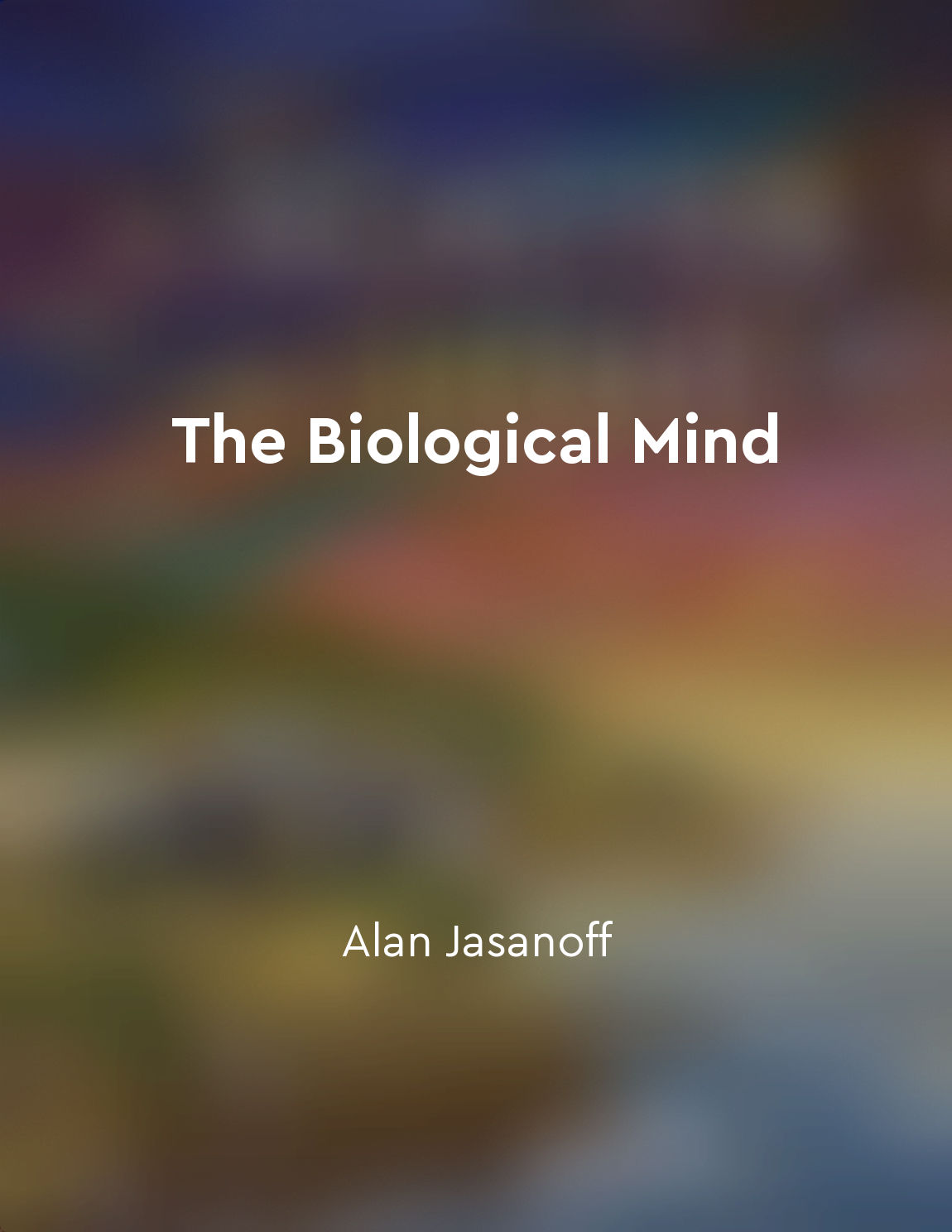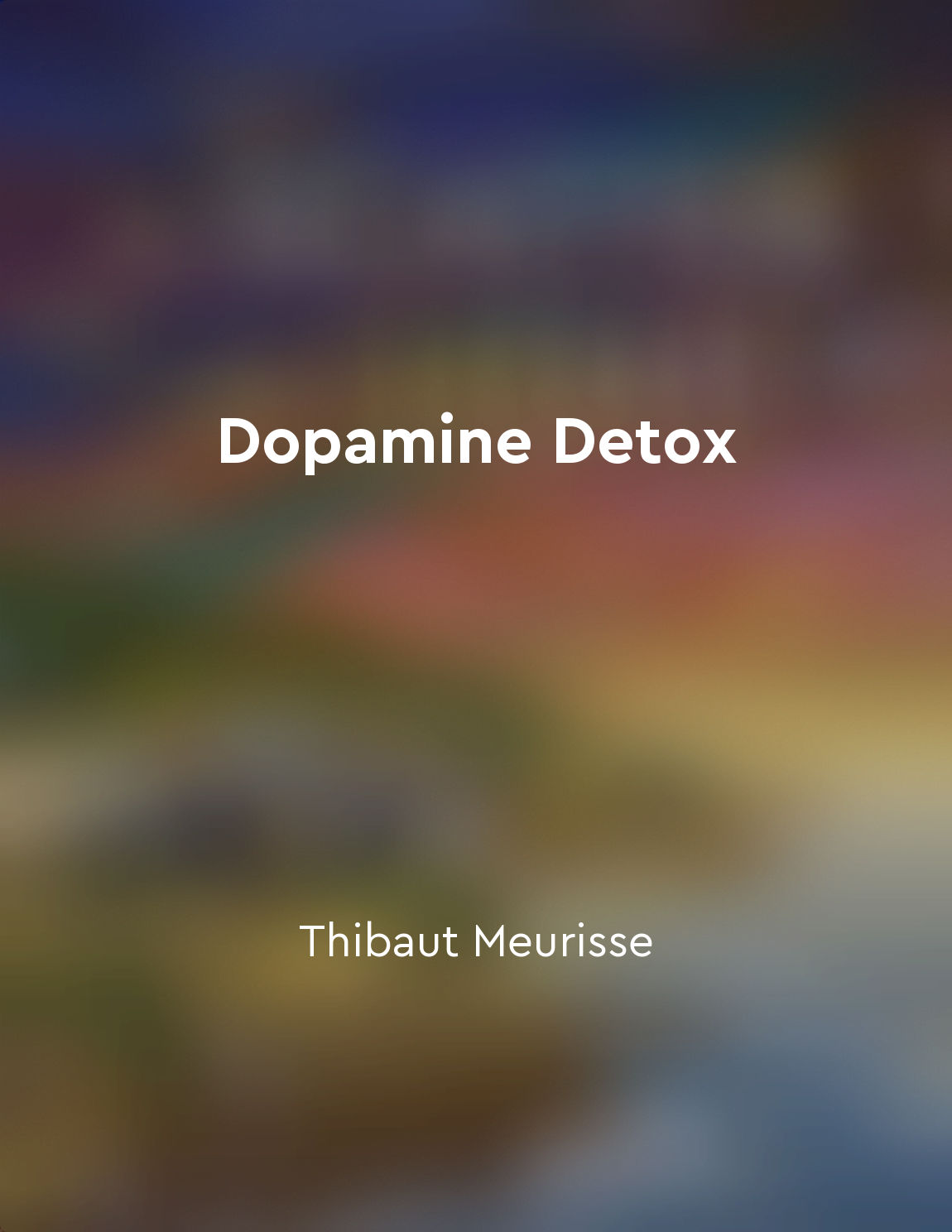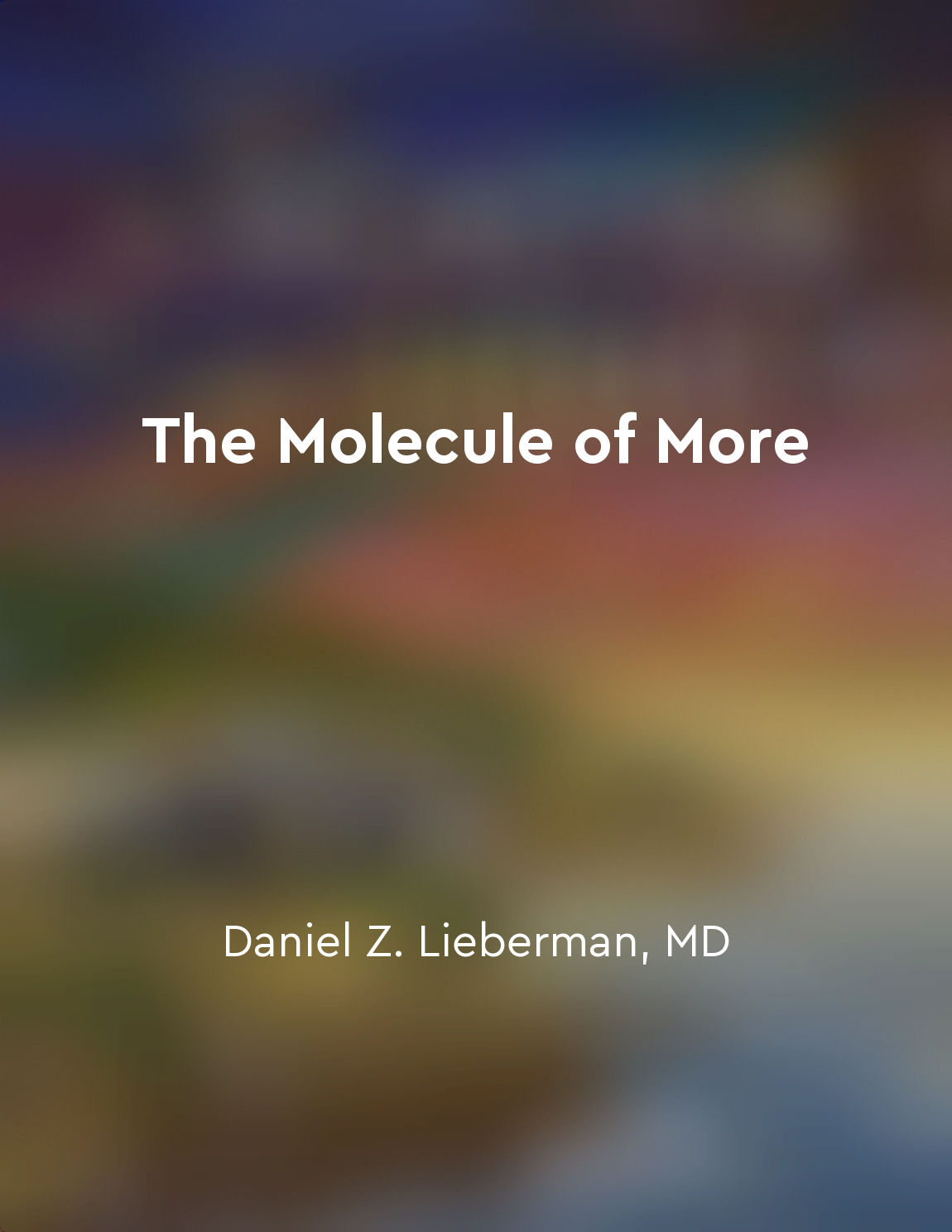Understanding dopamine can lead to better selfcontrol from "summary" of The Molecule of More by Daniel Z. Lieberman, MD,Michael E. Long
By understanding the role of dopamine in our brain, we can gain insight into the mechanisms that drive our behaviors and decision-making processes. Dopamine is a neurotransmitter that plays a crucial role in our brain's reward system, motivating us to seek out pleasurable experiences and rewards. When dopamine levels are elevated, we are more likely to engage in actions that are rewarding, such as eating delicious food or engaging in social interactions. However, the same mechanism that drives us to seek out pleasure can also lead to impulsive behaviors and poor self-control. When dopamine levels are too high, we may be more prone to making rash decisions and succumbing to temptations. This can have negative consequences on our ability to regulate our emotions and behaviors, leading to issues such as addiction, impulsivity, and poor decision-making. By understanding how dopamine influences our behavior, we can learn to better regulate our impulses and make more informed choices. By recognizing the role that dopamine plays in driving our desires and motivations, we can develop strategies to control its effects and improve our self-control. This may involve practicing mindfulness, setting clear goals, and creating a supportive environment that minimizes triggers for impulsive behaviors.- By gaining a deeper understanding of dopamine and its impact on our brain, we can take proactive steps to enhance our self-control and make healthier decisions. Instead of being driven solely by our immediate desires and impulses, we can learn to harness the power of dopamine to work in our favor and achieve our long-term goals. Through self-awareness and intentional effort, we can cultivate a greater sense of control over our actions and behaviors, leading to a more fulfilling and balanced life.
Similar Posts
Brain is plastic
The brain is a remarkable organ, capable of adapting and changing throughout our lives. This concept, known as brain plasticity...

Unraveling the mysteries of the brain remains an ongoing endeavor
Understanding the brain is an intricate and continuous process that scientists have been working on for centuries. The complexi...
Good sleep hygiene is crucial for optimal brain performance
Good sleep hygiene is crucial for optimal brain performance. Think of your brain as the CEO of your body; it needs rest and rej...

Reflect on the lessons you've learned during the detox and how they can inform your future choices
As you near the end of your dopamine detox, it's important to take some time to reflect on the valuable lessons you've learned ...
Mental illnesses can significantly impact behavior
Mental illnesses can significantly impact behavior. Consider schizophrenia, a disorder characterized by hallucinations, delusio...
Polyphasic sleep patterns for increased productivity
Polyphasic sleep patterns are a fascinating method to reclaim time that would otherwise be lost to sleep. The idea is simple: i...
Dopamine dysregulation can cause depression
Dr. Anna Lembke explores the intricate relationship between dopamine dysregulation and depression in her book "Dopamine Nation....
Brain imaging can help predict addiction risk
Brain imaging techniques allow researchers to observe the brain in action, providing valuable insights into how different regio...
Compulsive drugseeking behavior overrides rational decision-making
Compulsive drugseeking behavior is a relentless force that can overpower even the most rational of minds. When consumed by the ...
The brain processes information through electrical signals
The human brain is a complex organ that is responsible for processing vast amounts of information every single day. One of the ...


